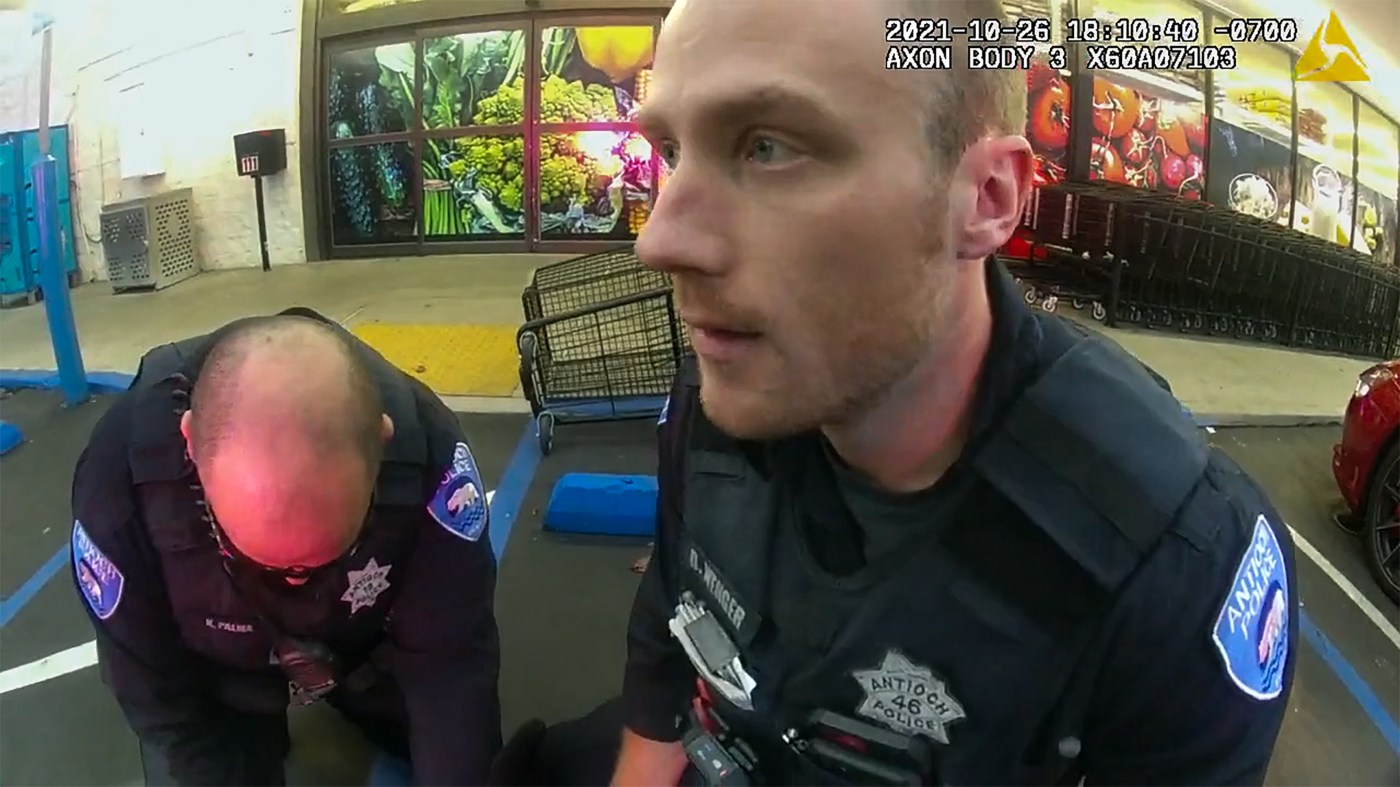
OAKLAND — A former Antioch officer became a convicted felon Wednesday, when a jury found him guilty of distributing steroids and obstructing a federal investigation, prosecutors said.
Devon Wenger was convicted of distributing steroids, which carries up to 10 years in federal prison, and altering records to obstruct federal investigators, which carries a maximum 20-year prison term, the U.S. Attorney’s office announced. Wenger’s legal problems aren’t yet over; this summer he is scheduled to go on trial on charges of conspiracy and violating a person’s civil rights.
Until Wednesday, Wenger was the only of 14 ex-Antioch and Pittsburg cops to avoid a conviction. The other 13 either pleaded guilty or were found guilty of state and/or federal offenses since August 2023, when state and federal prosecutors brought a range of charges against the group.
Wenger has long maintained that he is innocent of any crime but was targeted because he attempted to expose misconduct by other officers. He resigned from the department in 2023 and recently sued Antioch police, court records show.
In this case, the government’s lead witness was another ex-Antioch cop who admitted to distributing steroids on a much larger scale than Wenger. The officer, Daniel Harris, testified he was trying to right his wrongs by testifying, and said listed at least 10 people who bought steroids from him, including at least three with ties to the Contra Costa County Sheriff’s Office and other past and present Antioch or Pittsburg police officers.
Harris, a bodybuilder, said that he’d often sell his own personal stash or place orders for them with an underground seller out of Florida, who then mailed packages to California. He also said he consulted new entrants to the world of illegal anabolic steroids — as happened in January 2022 when Wenger sent a text asking for some test or growth s— in my life,” allegedly referring to testosterone and human growth hormone, according to court testimony.
At the time, Wenger was trying to become a Green Beret in the Army’s Special Forces, yet he appeared to be having trouble getting over a case of COVID-19, witnesses testified at trial. “I’m tired of being lean, bro,” Wenger allegedly texted Harris. “I just want to be a f—— animal.”
“Well you are an animal,” Harris texted back. “We can just make you a bigger, more vascular animal. Lol”
A few days later, Wenger received his first steroid injection while visiting Harris’ house, and bought a $290 stash of vials and pills, prosecutors alleged at trial. Within days, Wenger appeared “stoked” about the results, according to texts made public at trial.
“Welcome to the anabolic club!” Harris replied, before adding a word of caution suggesting that “I’d keep it hush you are taking anything” to people at the police department, lest Wenger end up “blacklisted.”
That same month, prosecutors say Wenger connected another man — a fellow Green Beret hopeful who was enlisted in the California National Guard but living in Oregon — with Harris, also to buy anabolic steroids. Prosecutors say the subsequent package of steroids meant for that national guardsman was intercepted by U.S. postal inspectors on its way from Florida to California.
In March 2022, federal agents showed up at Wenger’s house with a search warrant and tried to seize Wenger’s phone — calling and texting him repeatedly to step out of his home and cooperate. Yet Wenger initially refused to cooperate — at one point, telling a federal agent that he thought the request was a scam and “b——-“, according to court testimony. That’s when agents asked Antioch’s police chief to intervene and call Wenger himself.
When Wenger finally did hand over his phone more than an hour later, all of the texts he allegedly exchanged with Harris and the other Green Beret hopeful were missing, as was Wenger’s Venmo payment history with Harris, federal prosecutors alleged at trial.
On the trial’s opening day, Wenger’s attorney insisted that Harris never let on that he was marshalling an illegal steroid ring.
“Mr. Harris didn’t put himself out there as a drug dealer – he was a bodybuilder. He sold himself as a nutritional counselor and a coach,” said the attorney, Dena Young. She followed a familiar playbook in prior trials of Antioch officers, questioning the motives of Harris’ cooperation with prosecutors — referencing the plea deal that Harris took, which required him to testify against his friend.
In March, another ex-officer, Morteza Amiri, was convicted of violating a man’s civil rights by siccing his police dog on the victim, and with falsifying a report to cover it up. Amiri and Wenger started the trial together, but just two days in Wenger’s lawyer, Nicole Lopes, moved for a mistrial, citing her own inability — and lack of support from her law firm — to continue.
Judge Jeffrey White, who also presided over Wenger’s steroids case, granted Lopes mistrial motion. But White subsequently forced Lopes off that case in a lengthy verbal order that said she was incompetent to handle a re-trial. Wenger has since retained an experienced trial attorney from Los Angeles to handle that case, court records show.
Amiri, who was also convicted in a scheme to defraud the city of Antioch by illegally obtaining education incentive pay by cheating on college classes, has been jailed pending sentencing in the civil rights case.